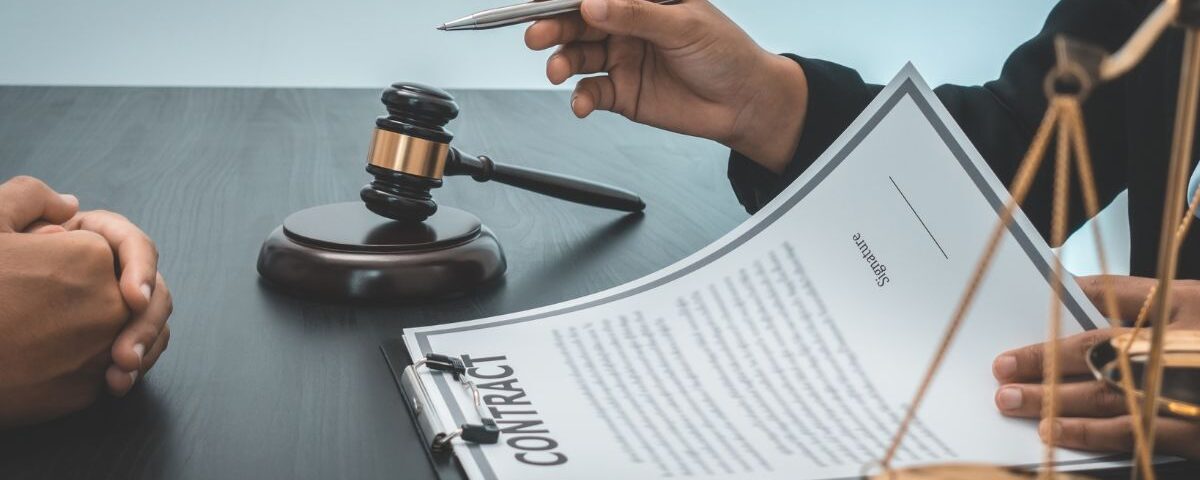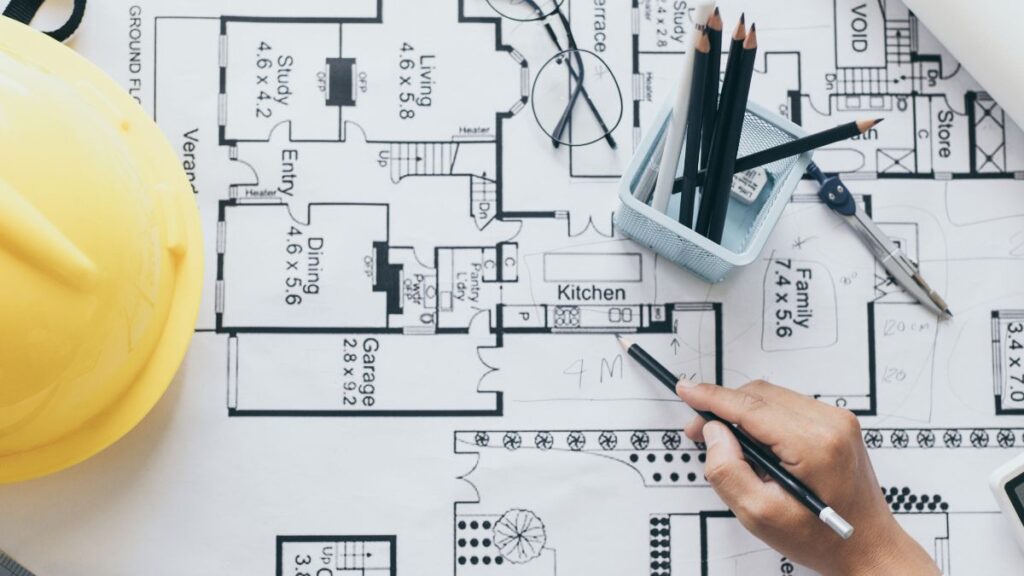
Color Theory in Interior Design: Creating Mood with Color
July 16, 2023
Achieving Serenity with Minimalist Design
July 18, 2023Introduction to Legal Considerations in Interior Design

In the world of interior design, creativity and aesthetic sense are crucial. But a successful designer also needs to understand the many legal considerations that govern their profession. The law might seem like a dry and complex subject, but understanding the basics can help protect your business, improve your client relationships, and ultimately enhance your work.
Table of Contents
The Importance of Contracts in Interior Design
Contracts are the lifeblood of any interior design project. They outline the agreement between you and your client, specifying what work will be done, the timeline, the costs involved, and what happens if things don’t go as planned. A well-drafted contract protects both parties and helps prevent disputes.

Intellectual Property Rights: An Overview for Interior Designers
As a designer, your creativity is your most valuable asset. Understanding intellectual property laws helps protect your designs from being used without your permission. This includes copyright laws, which apply to your drawings, plans, and other creative works, and trademark laws, which can protect your brand name and logo.

Understanding Liability and Insurance in Interior Design
Interior designers can face various liabilities, from accidents during installation to claims of professional negligence. That’s why having the right insurance coverage is crucial. Professional liability insurance, for example, can protect you if a client claims your work caused them harm or loss.
The Role of Building Regulations and Permits in Interior Design Projects
Interior designers need to be aware of local building regulations and permit requirements. These rules can affect everything from structural changes to electrical work, and failing to comply can lead to serious legal and financial consequences.

Employment Law Concerns for Interior Designers
If you employ staff or work with independent contractors, you’ll need to understand employment laws. These can cover everything from minimum wage requirements to health and safety regulations. You also need to know the difference between an employee and a contractor, as misclassification can lead to legal issues.
The Relevance of Tax Laws for Interior Design Professionals
Tax laws are another key legal consideration for interior designers. From income tax to sales tax, understanding your tax obligations is crucial. Failing to comply with tax laws can lead to fines, audits, and other problems.
Ethical Considerations in Interior Design
While not always legally binding, ethical guidelines are another crucial consideration. Interior designers are expected to work honestly, treat clients and colleagues fairly, respect the environment, and uphold the profession’s reputation. Breaching these guidelines can lead to professional sanctions and damage your reputation.
Protecting Client Privacy: A Legal Obligation
Interior designers often have access to clients’ private spaces and personal information. Laws such as data protection regulations obligate you to respect and protect this privacy. Failing to do so can lead to legal issues and damage your client relationships.

Dispute Resolution: Preventing and Handling Disagreements in Interior Design Projects
Disputes can arise in any interior design project. Understanding dispute resolution methods, from negotiation to mediation to legal proceedings, can help you manage these situations effectively. Your contract should also specify how disputes will be handled.
The Benefits of Legal Education for Interior Designers
While you don’t need to be a legal expert, basic legal education can be incredibly beneficial. It can help you navigate the legal aspects of your work more confidently and avoid potential pitfalls.
Legal Resources for Interior Designers: Knowing Where to Seek Help
Various resources can help you with legal issues, from professional associations to legal consultants specializing in interior design. Don’t hesitate to seek professional advice if you’re unsure about a legal issue.

Case Study: A Lesson in Legal Considerations from a Renowned Interior Designer
This section can provide a real-world example of a legal issue in interior design, showing how the designer navigated the situation and the lessons other designers can learn from it.
Key Takeaways: Navigating Legal Considerations in Interior Design
Legal knowledge is essential for interior designers to secure their business, protect intellectual property, and handle disputes. Contracts, intellectual property clauses, and insurance are indispensable tools, while adherence to ethical guidelines safeguards professional reputation. Understanding building regulations and seeking legal advice help designers avoid pitfalls.
Conclusion: The Crucial Role of Legal Knowledge in Interior Design Success
Understanding the legal aspects of interior design might seem daunting, but it’s a crucial part of professional success. With the right knowledge and resources, you can navigate the legal landscape confidently and focus on what you do best: creating beautiful spaces.
FAQs
1. What ethical guidelines must interior designers follow?
Interior designers are expected to work honestly, treat clients and colleagues fairly, uphold environmental considerations, and maintain the profession’s reputation. Adhering to these ethical standards protects both the designer’s credibility and the industry’s integrity.
2. What legal issues are most common in interior design?
Some common legal issues in interior design include contract disputes, intellectual property infringement, liability claims, and issues related to building codes and permits.
3. What type of insurance do interior designers need?
Interior designers typically need professional liability insurance, which can cover claims related to errors and omissions in their work. They may also need general liability insurance for accidents and injuries that occur on the job.
4. How can interior designers protect their intellectual property?
Interior designers can protect their intellectual property by understanding copyright and trademark laws, registering their work where appropriate, and including intellectual property clauses in their contracts.
5. Why are contracts important in interior design?
Contracts are crucial in interior design because they outline the agreement between the designer and the client, protect both parties interests and help prevent disputes.
6. What ethical guidelines apply to interior designers?
Ethical guidelines for interior designers can include working honestly, treating clients and colleagues fairly, respecting the environment, and upholding the profession’s reputation.
7. What are the most common legal challenges interior designers encounter?
The most common legal challenges faced by interior designers include disputes over contracts, claims of intellectual property infringement, liability concerns involving accidents or negligence, and issues with building codes or permits. Proper understanding and preparation can mitigate these challenges.
8. Why do interior designers need professional liability insurance?
Professional liability insurance safeguards interior designers against claims of errors or negligence in their work that might harm clients or cause financial losses. It is crucial for protecting a designer’s business from costly lawsuits that can arise due to misunderstandings or mistakes.
9. How can interior designers safeguard their intellectual property?
Interior designers can protect their creative work by understanding intellectual property laws. Registering designs under copyright law and securing trademarks for branding assets like logos are effective strategies. Designers should also incorporate intellectual property clauses in contracts to clarify ownership rights.
10. Why is having a clear contract essential in interior design projects?
A clear contract establishes the agreement between designer and client, outlining expectations, costs, timelines, and dispute resolution methods. This transparency protects both parties’ interests, preventing conflicts and offering a reference if misunderstandings arise.
11. How should interior designers handle building regulations and permits?
Designers must be aware of local building regulations and secure any necessary permits before starting projects. Failure to comply can lead to costly penalties, delays, or liability issues. Consulting building authorities early can clarify the specific requirements.
12. What distinguishes an employee from an independent contractor in interior design firms?
Employees generally work under direct supervision and have specific employment benefits. Independent contractors operate with more autonomy, often managing their own taxes and insurance. Misclassifying workers can lead to legal trouble, so interior design firms should clearly define these relationships.
13. Why is legal education important for interior designers?
Legal education helps interior designers navigate the complexities of contracts, insurance, and intellectual property. Understanding basic legal concepts helps designers minimize risks, manage disputes, and build stronger client relationships.
14. How can interior designers effectively resolve disputes?
Designers should first attempt to resolve disputes through negotiation. If this fails, mediation or arbitration are useful alternatives to legal proceedings. Including a dispute resolution clause in contracts helps both parties handle disagreements smoothly.
15. Where can interior designers seek help for legal issues?
Professional associations, legal consultants specializing in interior design, and online legal resources are valuable sources for legal advice. Seeking professional guidance ensures that designers can address complex legal matters with confidence.

0 Comments
Hello my family member! I wish to say that this article is amazing, nice written and include almost all important infos. I¦d like to peer more posts like this .